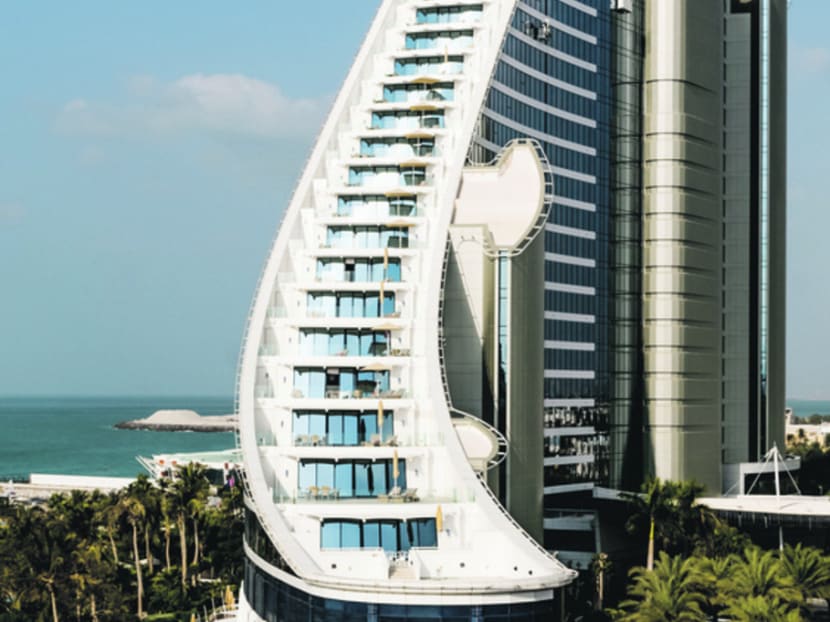More reasons to stay in Dubai
DUBAI — The Burj al Arab. The Jumeirah Beach Hotel. The palm island’s Atlantis. All unmistakably Dubai, the Persian Gulf emirate that turned itself into a luxury tourist destination. Now Dubai is doubling down by building hotels at the fastest pace of any city, putting pressure on occupancy and rates that are among the highest in the world. The 14,385 rooms under construction will increase supply by about a fifth, according to industry researcher STR Global, and thousands more are planned.

Dubai is building hotels faster than any city and increasing efforts to attract tourists.
Photo: Getty images
DUBAI — The Burj al Arab. The Jumeirah Beach Hotel. The palm island’s Atlantis. All unmistakably Dubai, the Persian Gulf emirate that turned itself into a luxury tourist destination. Now Dubai is doubling down by building hotels at the fastest pace of any city, putting pressure on occupancy and rates that are among the highest in the world. The 14,385 rooms under construction will increase supply by about a fifth, according to industry researcher STR Global, and thousands more are planned.
“There is concern around Dubai that we won’t see the same high rates as before,” said Philip Wooller, Middle East and Africa director at STR Global. “But there is a bigger picture here and Dubai’s room rates need to soften to keep people coming and to allow the market to evolve.”
From the Roman columns of the soon-to-open Palazzo Versace to the Ottoman domes of Zabeel Saray, Dubai is adding to monuments that serve as tourist attractions in their own right. City authorities show no sign of impeding the rush toward growth, with plans to almost double rooms by 2020.
While demand is growing year on year, supply is currently increasing at a faster pace, Wooller said.
For now, owners and managers might find it easy to shrug off a few points of declines. “Even if occupancy softens by five or six percentage points, that’s a very strong market and any other city in the world would give its right arm for that,” said Alex Kyriakidis, president and managing director of Marriott International Inc. for the Middle East and Africa. “Dubai is still a highly desirable market to be in.”
The city is stepping up efforts to woo tourists with marketing initiatives, additional flights and easier visa policies after the ruble’s decline caused Russian visits to drop by about a quarter, said Helal Saeed Almarri, director general of the Department of Tourism and Commerce Marketing, at a conference in Dubai. The Dubai Department for Economic Development expects tourism to grow 4.1 percent this year.
Dubai authorities, who estimate that the city already has 93,000 rooms, would like to see supply grow by 8 percent to 12 percent annually, Almarri said.
That’s realistic, said Chiheb Ben Mahmoud, head of hotel advisory for the Middle East and Africa at JLL. “Tourism isn’t a matter of local demand, it’s something you create. Who would have thought 15 years ago that Dubai would have more than 13 million visitors?” Bloomberg





